Thread Count
What is the optimal thread count for down and feather products? How does thread count affect the quality, feel, and price of a product? Read on to find answers to common questions about thread count!
Let's start with the basics. What is thread count?
Short Answer: Thread count refers to the number of threads per square inch of fabric.
Long Answer: The total number of threads in a square inch is calculated by adding the threads running right and left (weft) and the threads running up and down (warp). The higher the thread count, the thinner the threads are, and therefore, the softer and smoother the fabric feels. Higher thread count fabric is generally more expensive than lower thread count fabric.

Does higher thread count mean higher quality fabric?
Short Answer: Not necessarily.
Long Answer: When we talk about the thread count of down and feather products, we are referring to the thread count of the shell. A very high thread count shell is not ideal for a few reasons. Let’s take a 1000 thread count shell, for example. In order to fit 1000 threads in a square inch, the threads would need to be extremely thin, resulting in a fabric that is not very durable or long-lasting.
A product that is advertised as having a 1000 thread count shell is likely double ply. This means each thread is actually made up of 2 threads twisted together. Therefore, the thread count is technically 500 (isn’t that tricky?!) 1000 thread count double ply fabric is heavy and doesn’t breathe well, making it less suitable for down and feather products.

What is the ideal thread count for down and feather products?
Short Answer: It depends.
Long Answer: Single ply, lower thread count fabrics are lighter, allowing down to loft properly. A down or feather comforter should have a shell with a thread count of 233 to 500. Shells with thread counts below 233 may allow the fill to leak, while shells with thread counts over 500 may be too fragile (if single ply) or too heavy (if double ply).
Which thread count is best depends on what is most important to you, the consumer.
A 300 - 500 thread count shell will be more breathable, softer and less noisy.
Lower thread count fabric, like 233, is more durable and cost effective. Lower thread count shells are noisier, as they are made with thicker, coarser thread. The good news is: comforter shells soften over time, becoming less starchy and noisy (just like your favorite jeans!)

Have more questions about thread count? Submit a comment below!
Illustrations by Amanda Nguyen

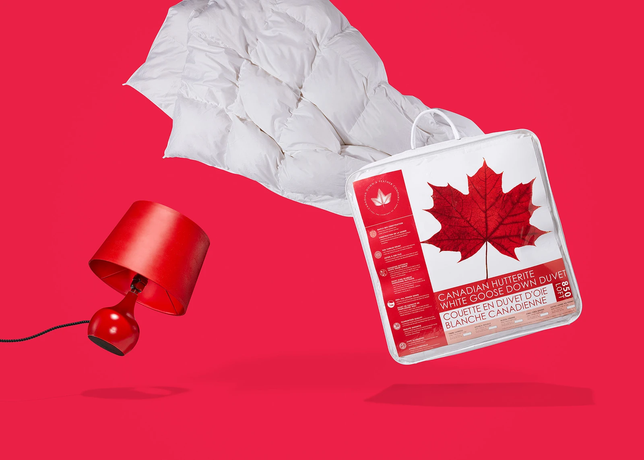
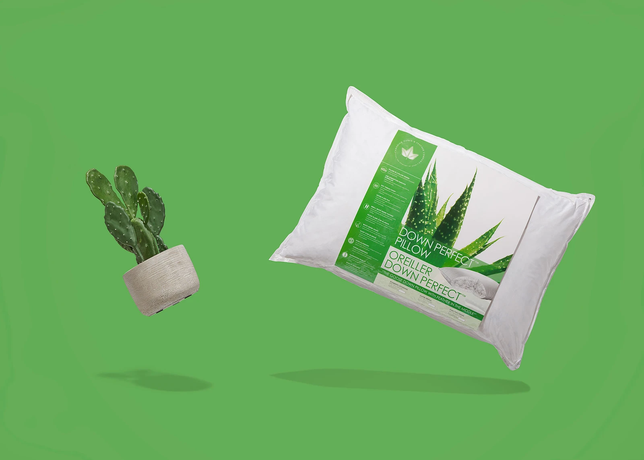
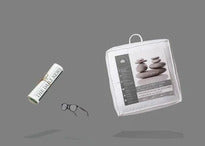
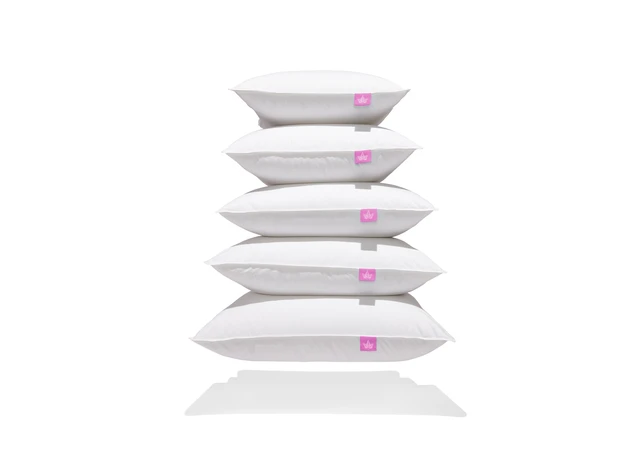
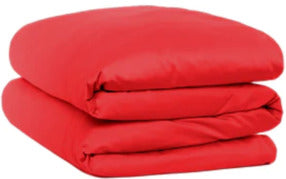
5 comments
Looking for a queen all season down duvet that isn’t heavy. I’m a warm person so I don’t want lots of warmth in the cover. Thanks for any help you can provide.
Susanne Racine
Hi Susanne, If you’re looking for a lightweight duvet, I recommend a down duvet! Down is a very high performance material, so just a little bit of fill provides a lot of warmth! This means down duvets are generally very light and airy. If you’re warm, you may wan to opt for Summer Weight. What we call All Season Weight is warm enough for cool room temperatures (16-18C), so may be too warm for your needs. You can see which duvets come in Summer Weight on our product comparison chart!
Canadian Down & Feather Company
I have two down perfect pillows I enjoy. I’m now getting the one hundred percent down pillow in firm what should I expect from my new pillows and my down perfect pillows?
Anne Feltz
Hi Anne, The down pillows you purchased will be much more soft, sinky, and malleable than the Down Perfect. Down is made up of delicate, fluffy clusters which don’t have the same heft as feather. Feather is what provides support in pillows!
Canadian Down & Feather Company
Do you come across people who find they are allergic to a down duvet?
Hilda Fletcher
Hi Hilda, Occasionally, yes, but true down and feather allergies are quite rare. The vast majority of allergy sufferers are sensitive to dirt, dust, bacteria or other allergens that can collect on down and feather. However, all of the down and feather we use has been rendered hypoallergenic or ‘super clean’ through the cleaning process and is generally fine for most people.
Canadian Down & Feather Company
This is the first time I am considering down duvet. This is due to the higher costs on down filled content and the lack of knowledge to shop for the most ideal one, in short for fear of making mistakes. Please help me to find the most ideal down duvet: one that is soft, light, not noisy and warm/cool year round. I have a double bed, I would like to order a king size that would give me more coverage. I am excited with your sale, hopefully I can find the perfect cover with your help. most importantly, are your products returnable with full refund?
Josephine Lo
Hi Josephine, All down duvets are lightweight. This is because down is such a powerful insulator - a little bit of fill creates a lot of warmth! The filling of any down duvet is soft, because down is soft by nature. However, the fabric of the shell may not be soft if it is low thread count. For soft, quiet fabric, look for higher thread counts, above 300 (ideally 400+). You can find all of our down duvets and compare them by thread count on the Product Comparison Chart.
It is tricky to find a duvet that is both warm and cool. It can’t change its insulating properties depending on the outside temperature! Check the product description to see which weight is best for your room temperatures. If your room temperatures fluctuate significantly, I recommend catering to the warmest temperature. It’s easy enough to add an extra blanket on cold days, but very difficult to sleep if you’re too hot!
King size will be quite large on a double bed, with a lot of overhang! I would imagine that going up to a Queen size would be large enough, but totally your call! You may just want to check the product dimensions just in case. You can return any unused product for a refund within 30 days. You can read more on our Returns & Refunds page.
Canadian Down & Feather Company
Thank you. Great info😄👍🏼
G. Richer
Leave a comment
This site is protected by hCaptcha and the hCaptcha Privacy Policy and Terms of Service apply.